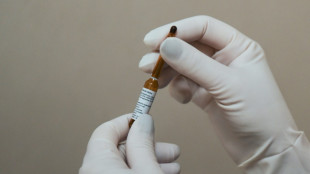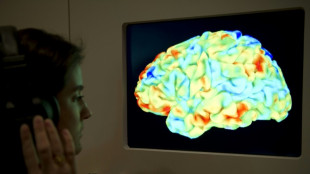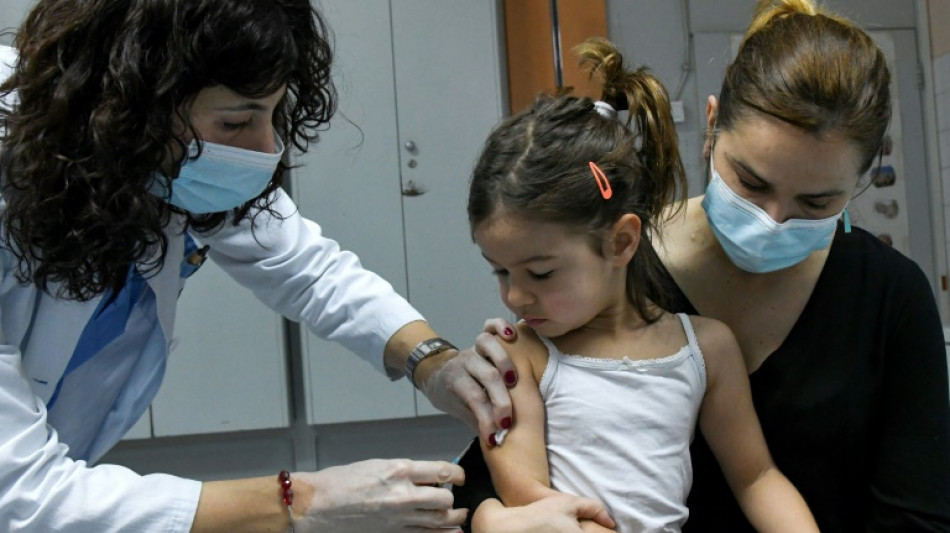
-
 Heat humble Celtics for sixth straight win, Thunder roll on
Heat humble Celtics for sixth straight win, Thunder roll on
-
Trump escalates trade war with sweeping global tariffs
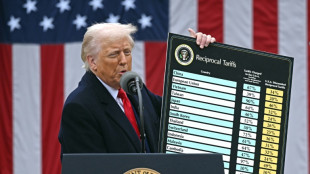
-
 Japan says US tariffs 'extremely regrettable', may break WTO rules
Japan says US tariffs 'extremely regrettable', may break WTO rules
-
South Koreans anxious, angry as court to rule on impeached president
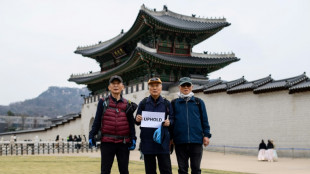
-
 Juve at in-form Roma with Champions League in the balance
Juve at in-form Roma with Champions League in the balance
-
Injuries put undermanned Bayern's title bid to the test

-
 Ovechkin scores 892nd goal -- three away from Gretzky's NHL record
Ovechkin scores 892nd goal -- three away from Gretzky's NHL record
-
Australian former rugby star Petaia signs for NFL's Chargers

-
 China says opposes new US tariffs, vows 'countermeasures'
China says opposes new US tariffs, vows 'countermeasures'
-
Athletics world watching as 'Grand Slam Track' prepares for launch

-
 Heat humble Celtics for sixth straight win, Cavs top Knicks
Heat humble Celtics for sixth straight win, Cavs top Knicks
-
Quake-hit Myanmar's junta chief to head to Bangkok summit

-
 New Spielberg, Nolan films teased at CinemaCon
New Spielberg, Nolan films teased at CinemaCon
-
Shaken NATO allies to meet Trump's top diplomat

-
 Israel's Netanyahu arrives in Hungary, defying ICC warrant
Israel's Netanyahu arrives in Hungary, defying ICC warrant
-
Shiny and deadly, unexploded munitions a threat to Gaza children

-
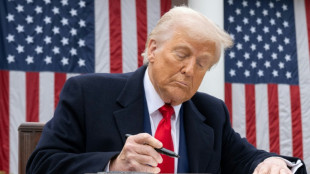 Stocks tank, havens rally as Trump tariffs fan trade war
Stocks tank, havens rally as Trump tariffs fan trade war
-
Altomare hangs on to tie defending champ Korda at LPGA Match Play

-
 Paraguay gold rush leaves tea producers bitter
Paraguay gold rush leaves tea producers bitter
-
Health concerns swirl as Bolivian city drowns in rubbish

-
 Syria says deadly Israeli strikes a 'blatant violation'
Syria says deadly Israeli strikes a 'blatant violation'
-
Financial markets tumble after Trump tariff announcement
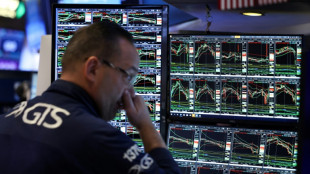
-
 Starbucks faces new hot spill lawsuits weeks after $50mn ruling
Starbucks faces new hot spill lawsuits weeks after $50mn ruling
-
Europe riled, but plans cool-headed response to Trump's tariffs
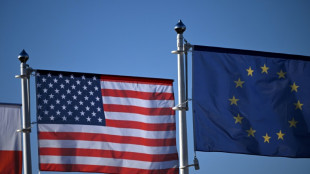
-
 'Shenmue' voted most influential video game ever in UK poll
'Shenmue' voted most influential video game ever in UK poll
-
New coal capacity hit 20-year low in 2024: report

-
 Revealed: Why monkeys are better at yodelling than humans
Revealed: Why monkeys are better at yodelling than humans
-
Key details on Trump's market-shaking tariffs

-
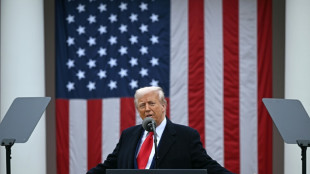 'A little tough love': Top quotes from Trump tariff talk
'A little tough love': Top quotes from Trump tariff talk
-
US business groups voice dismay at Trump's new tariffs

-
 Grealish dedicates Man City goal to late brother
Grealish dedicates Man City goal to late brother
-
US tariffs take aim everywhere, including uninhabited islands

-
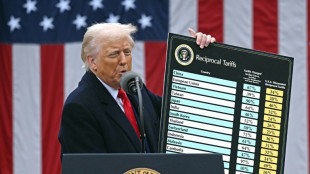 Trump sparks trade war with sweeping global tariffs
Trump sparks trade war with sweeping global tariffs
-
Israeli strikes hit Damascus, central Syria; monitor says 4 dead

-
 Slot 'hates' offside rule that gave Liverpool win over Everton
Slot 'hates' offside rule that gave Liverpool win over Everton
-
US stocks end up, but volatility ahead after latest Trump tariffs
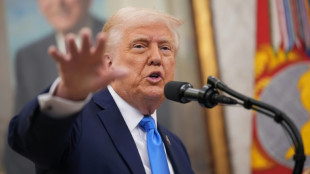
-
 Barca oust Atletico to set up Clasico Copa del Rey final
Barca oust Atletico to set up Clasico Copa del Rey final
-
Mourinho grabs Galatasaray coach's face after losing Istanbul derby
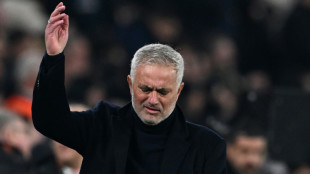
-
 Grealish strikes early as Man City move up to fourth in Premier League
Grealish strikes early as Man City move up to fourth in Premier League
-
Reims edge out fourth-tier Cannes to set up PSG French Cup final

-
 Liverpool beat Everton as title looms, Man City win without Haaland
Liverpool beat Everton as title looms, Man City win without Haaland
-
Jota wins bad-tempered derby as Liverpool move 12 points clear

-
 Inter and Milan level in derby Italian Cup semi
Inter and Milan level in derby Italian Cup semi
-
Stuttgart beat Leipzig to reach German Cup final

-
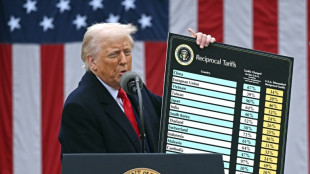 Trump unveils sweeping global tariffs
Trump unveils sweeping global tariffs
-
Italian director Nanni Moretti in hospital after heart attack: media

-
 LIV Golf stars playing at Doral with Masters on their minds
LIV Golf stars playing at Doral with Masters on their minds
-
Trump unveils sweeping 'Liberation Day' tariffs

-
 Most deadly 2024 hurricane names retired from use: UN agency
Most deadly 2024 hurricane names retired from use: UN agency
-
Boeing chief reports progress to Senate panel after 'serious missteps'


Covid-19 misinformation bolsters anti-vaccine movement
More parents are questioning the necessity of routine vaccinations for young children. Adults are skipping shots as well, even for vaccines with a long safety record.
The trend comes amid a wave of misinformation and disinformation about Covid-19 and the vaccines that helped to stem pandemic deaths. Politicization of the Covid-19 shots has bolstered the anti-vaccine movement, contributing to the decline in routine immunizations for measles, polio and other dangerous diseases.
"They ask if these are truly necessary, or if we can give them at later times," said Jason Terk, a Texas pediatrician and spokesperson for the American Academy of Pediatrics.
"This is not the majority of parents, but we are seeing a higher number."
The anti-vaccine movement has mushroomed as its messages on social media are amplified by conservative political figures as well as foreign influence operations, whose vaccine disinformation efforts pre-date the pandemic.
With routine immunization rates falling, concerns are growing about a resurgence of diseases which had largely been eradicated in many parts of the world.
In the United States, the percentage of kindergarten children with recommended immunizations fell a percentage point to 94 percent in the 2020-21 school year, representing some 35,000 children unvaccinated.
"I refer to it as the parallel contagion," Terk said. "This seems to have at its origin hesitancy in Covid-19 vaccinations and increasing distrust of vaccines and the bodies we've relied on to keep us healthy and well."
Dramatic changes were seen in some states, especially during the height of the pandemic: researchers found a 47 percent drop in immunization rates in Texas among five-month-olds and a 58 percent decline for 16-month-olds between 2019 and 2020.
The researchers, writing in the scientific journal Vaccine, said the declines resulted from shelter-in-place restrictions and vaccine exemptions, but also to "an aggressive anti-vaccine movement in Texas."
Washington state reported a 13 percent decline in childhood immunization rates in 2021 compared with pre-pandemic levels and Michigan's vaccination rate for toddlers fell last year to 69.9 percent, the lowest in a decade.
- Adults too -
Adult and adolescent inoculation rates have also dropped for vaccines protecting against diseases such as influenza, hepatitis, measles, tetanus and shingles, according to health consultancy Avalere, which analyzes insurer claims.
This has led to an estimated 37 million missed vaccination doses from January 2020 to July 2021 for adults and children ages seven and older, Avalere found.
Declines early in the pandemic can be attributed to shelter-in-place orders and social distancing, but "there is a risk of a bleed-over" of Covid vaccine misinformation, which affects other vaccines which have a longstanding safety record, noted Avalere managing director Jason Hall.
Social media have helped create a coalition that includes true anti-vaccine believers, libertarians and conservative political figures. These segments have been amplified by disinformation actors from Russia and elsewhere, said David Broniatowski, a George Washington University professor and associate director of the school's Institute for Data, Democracy and Politics.
"People have been opposing vaccines for as long as there have been vaccines, but they've gotten more sophisticated over the past 10 years and a lot of that has been because of the ability to organize on social media across boundaries,” said Broniatowski, who researches vaccine disinformation.
He noted that while anti-vaccine activists, libertarians and foreign agents are not necessarily coordinating, "they have found common cause" in opposing vaccine mandates.
"One of the main changes we've seen is a pivot away from focusing on vaccines per se as a health issue to a civil rights and a political issue," he added.
Conspiracy theories have surged during the pandemic, according to a 2021 YouGov poll, which found 28 percent of Americans and significant numbers in other countries say the truth about the harmful effects of vaccines is being "deliberately hidden."
- Foreign actors -
Broniatowski said that foreign disinformation agents "use vaccines as a wedge issue that can mobilize a segment of the population.”
A 2018 paper co-authored by Broniatowski in the American Journal of Public Health found anti-vaccine Twitter activity was amplified by Russian trolls from 2014 to 2017 as part of an effort to promote discord and undermine confidence in the health system.
Research from the Center for European Policy Analysis showed both China and Russia have promoted Covid-19 vaccine misinformation, in part to show that Western governments are incompetent and can't be trusted.
"There's been a concerted effort on the part of these actors to diminish the standing of science because it serves their political purposes," Broniatowski said.
The problem is growing globally as well. A United Nations report last year found 23 million children worldwide missed out on routine immunizations in 2020. In the Americas region, the percentage of fully inoculated children fell to 82 percent from 91 percent in 2016 due to factors including funding shortfalls, vaccine misinformation and instability.
This is likely to create more health risks down the road from diseases which have been mostly contained.
"We had certain thresholds of protection to keep these diseases from being relevant from a public health point of view," Terk said.
"The more people pushing back, the more likely we'll have pockets of vulnerability."
P.Costa--AMWN
